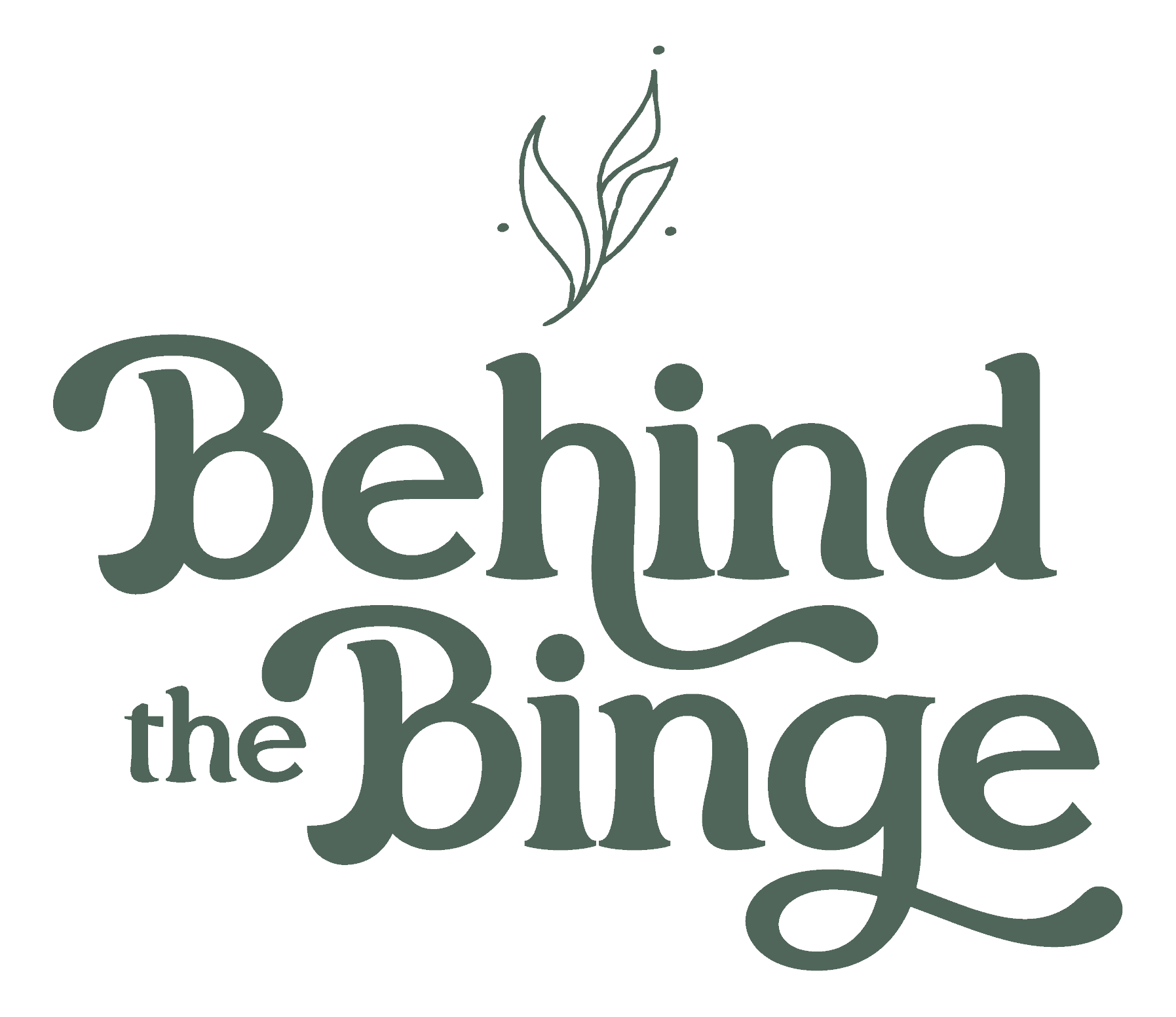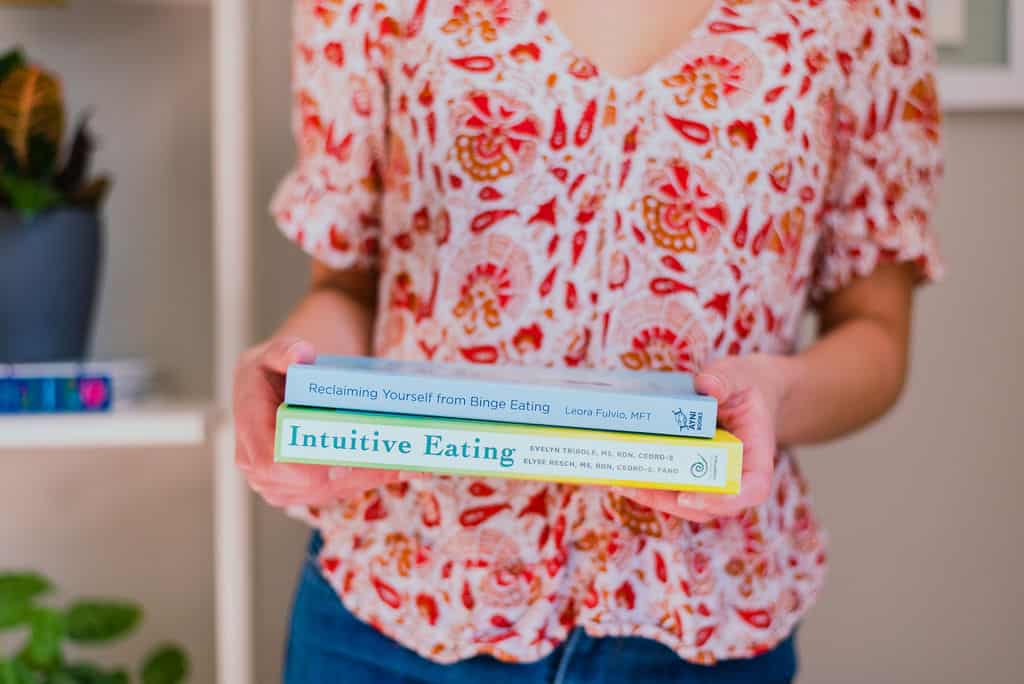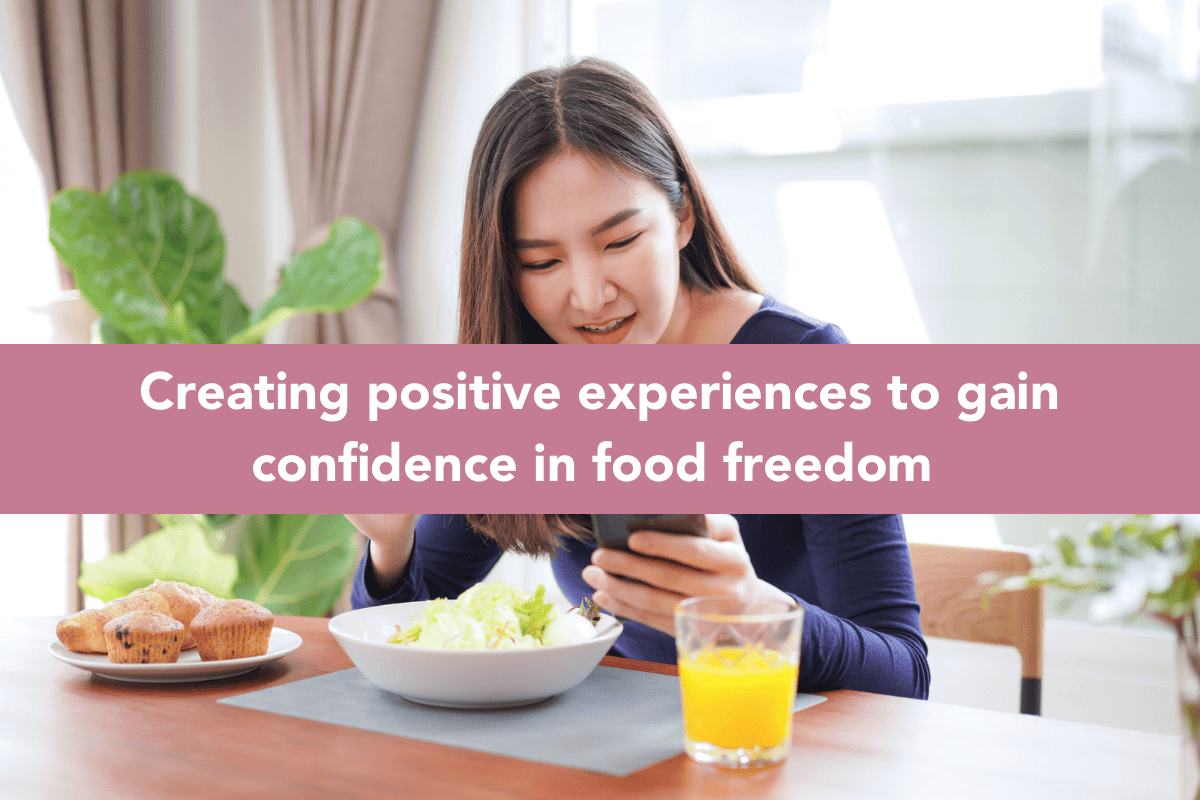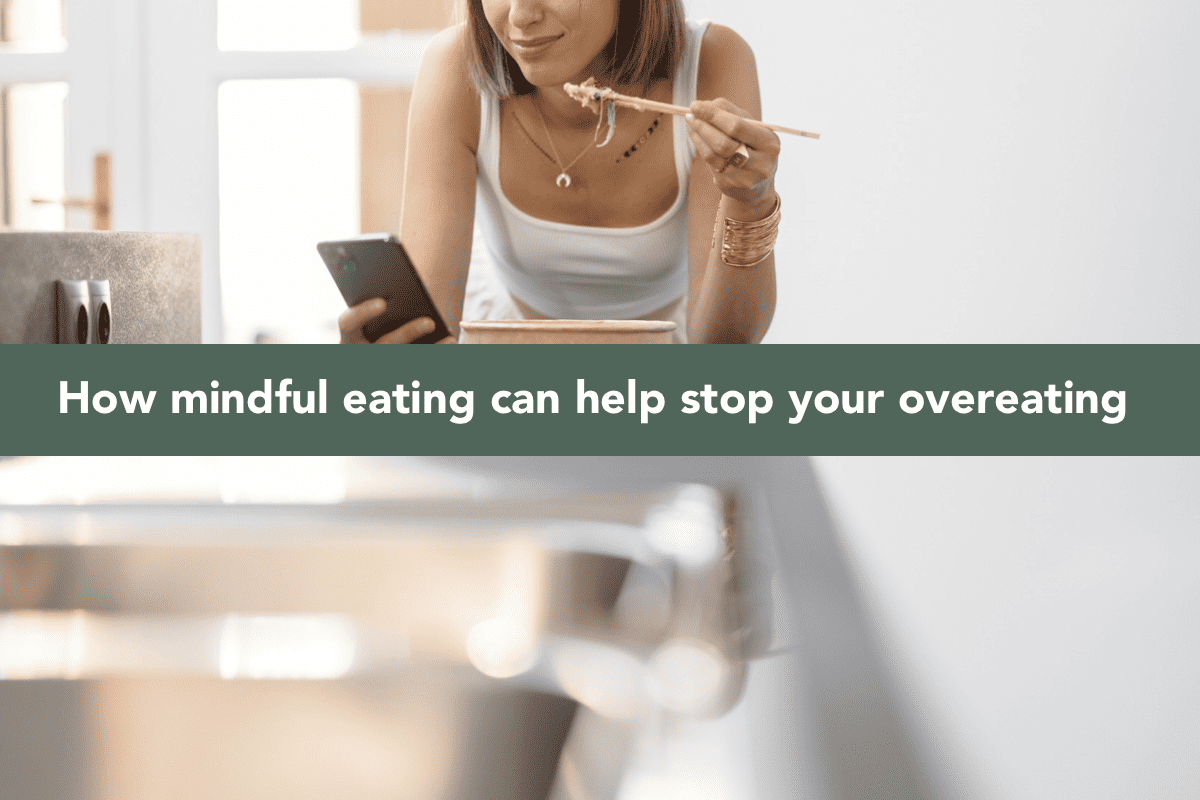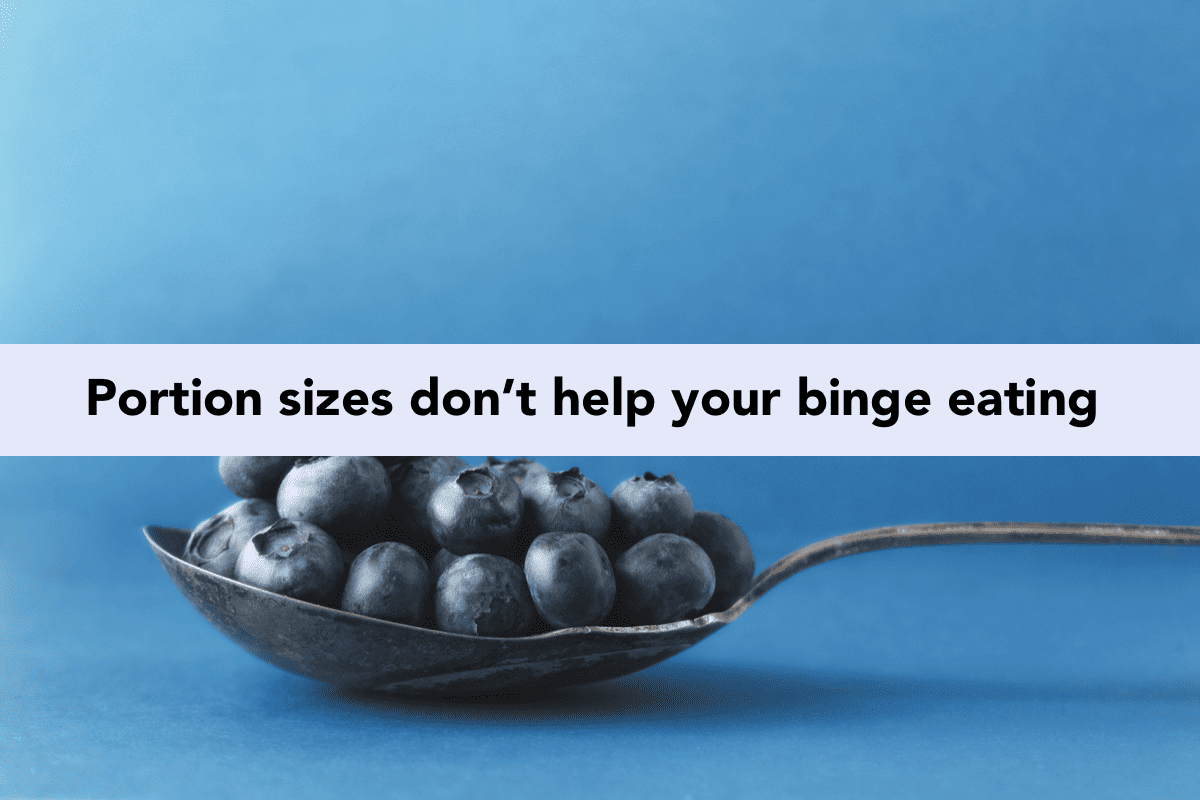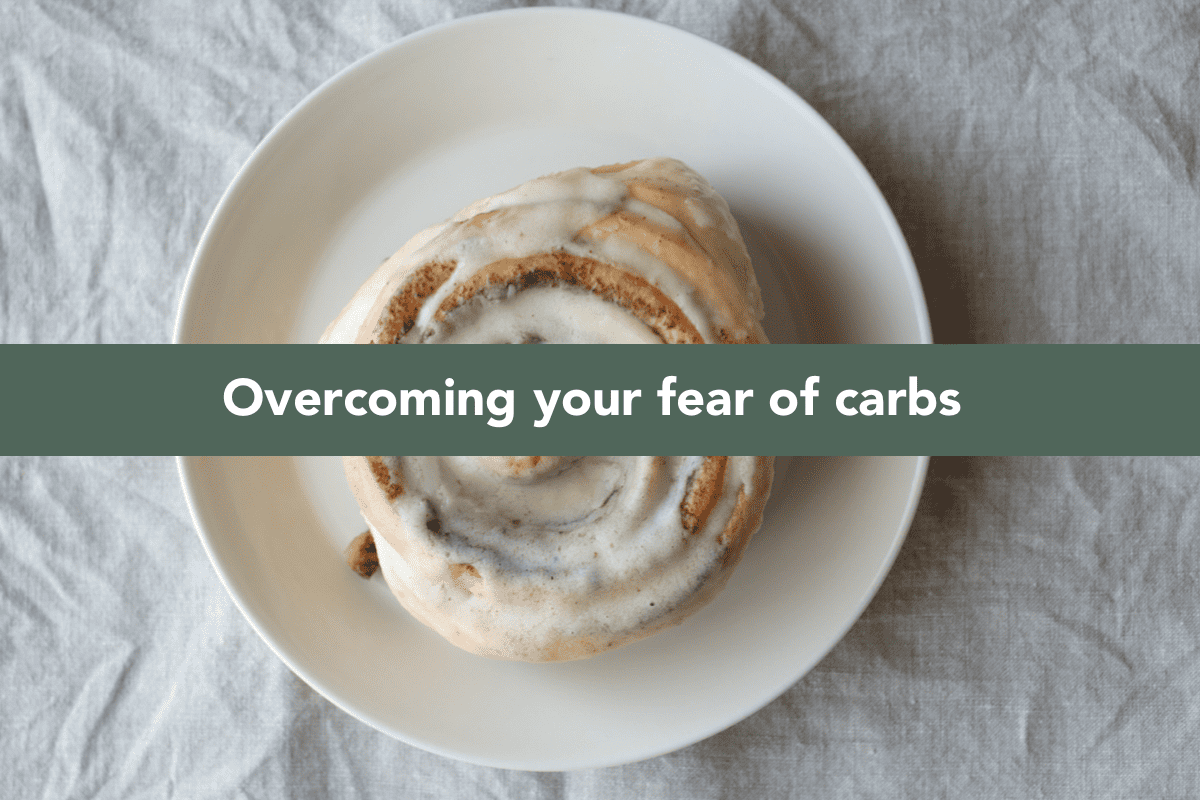If you’re not familiar, Intuitive Eating is an eating philosophy created by dietitians Evelyn Tribole and Elyse Resch, which follows 10 principles to break away from dieting and move toward a life of food freedom. Meaning, less counting calories and more listening to your body!
The ten principles are Reject the Diet Mentality, Honor Your Hunger, Make Peace with Food, Challenge the Food Police, Discover the Satisfaction Factor, Feel Your Fullness, Cope with Your Emotions with Kindness, Respect Your Body, Movement⎯Feel the Difference, Honor Your Health⎯Gentle Nutrition.
There are over 100 research studies that have shown the benefits of intuitive eating which include:
Higher self-esteem
Better body image
More satisfaction with life
Optimism and well-being
Proactive coping skills
Higher HDL cholesterol levels (good cholesterol)
Lower Triglyceride levels
Lower rates of emotional eating
Lower rates of disordered eating
Intuitive Eating sounds great, right? Listening to your body, no more dieting, no more counting calories or obsessing over food!? So why are you so hesitant to give it a try?
This is because diet culture tells us we cannot trust our body and we must rely on external resources to properly feed ourselves. We are taught to rely on numbers, measurements, and rules to eat in a way that supports our best health. But this isn’t necessary! If we can learn to trust and tune into our body, while also staying mindful of our health values, taking care of ourselves (what is in our control) doesn’t have to be so hard.
These hesitations arise due to a few misconceptions that you may have heard about Intuitive Eating. I want to break these down for you, so you can feel more confident in making the decision to leave diet culture for good and pursue Intuitive Eating.
Misconception #1: I’ll eat nothing but “junk” food all the time
I know you may fear that if you’re listening to your body, you’ll just eat pizza everyday, all day long. This is an understandable fear, especially when you’ve “listened to your body” in the past and made choices based solely on tastebuds. But, let’s talk about what listening to your body really means.
Listening to your body is more than just listening to your taste buds. It’s a mind-body connection that does include honoring your hunger and fullness cues; but also choosing food that makes you feel good, is satisfying, AND aligned with your health values. Yes, health values are a part of intuitive eating (we’ll talk more about health in a second).
Listening to your body also includes TRUSTING yourself. You can’t listen to your body if you don’t trust what your body is telling you she wants. When you trust what your body is telling you, this means you have an attunement to your body’s needs. You can build this attunement by utilizing the 10 principles of Intuitive Eating.
Misconception #2: Intuitive Eating will cause me to gain a lot of weight
What’s tricky with this misconception is that with Intuitive Eating you may gain weight. You may also lose weight, or your weight may not change at all! This is because your body is rediscovering the weight that is perfect for you, where you are at your healthiest self (aka your setpoint). And if you’re coming from a place of disordered eating where you’re below your setpoint weight, you may gain weight. The thing about Intuitive Eating is that it’s about learning to trust and listen to your body, so you don’t have to manipulate your body ever again.
Misconception #3: Intuitive Eating is only for people with eating disorders
Absolutely not! Intuitive Eating is great for individuals recovering from an eating disorder, but it’s also a practice I would encourage almost anyone to adopt. Think about it…do you have any friends who just eat what they want, when they want, and how much they want, and do things that support their health but are not obsessive with food? They’re likely natural Intuitive Eaters, just as we all were born to be!
Misconception #4: Intuitive Eating doesn’t work if you have a medically-necessary food restriction
False! Intuitive Eating can absolutely be implemented even with a food restriction such as an allergy. For example, I’ve worked with clients who have celiac disease (this is when the intestines get damaged when gluten is eaten) on making peace with their gluten restriction. This allowed them to honor their bodies intuitively without feeling deprived from gluten or causing their body harm from it. Intuitive Eating honors medical conditions and food-related health modifications. It also allows you to stay mindful of what will best serve you and your health based on your unique circumstances!
Misconception #5: Intuitive Eating disregards health
You’ve probably gotten the picture by now, but Intuitive Eating does NOT disregard health. In fact, 2 principles are dedicated to external health values, nutrition, and movement. The name “Intuitive” Eating can confuse people, because healthful living isn’t always intuitive. But like I said at the start of this blog post, Intuitive Eating is a MIND-BODY connection. You can absolutely stay mindful while also listening to your body. Plus, when you’re really in tune with your body, often you’ll gravitate toward nutritious foods and healthful habits more often than not.
Misconception #6: Intuitive Eating is for everyone!
I hear the “what ifs” all the time. “What about blood sugar’s effect on appetite?”, “what about with insulin resistance?”, “what about leptin resistance”, “what if I have x disorder and need to modify my nutritional intake”, etc. Listen, Intuitive Eating is not one-size-fits-all. It’s not simply “just listen to your body.” Any qualified intuitive eating health professional will always put your medical condition into consideration when helping you navigate Intuitive Eating. I’m never going to tell my binge eating clients without proper hunger/fullness signals to just “listen to their body”! It’s not that simple.
In saying this though, Intuitive Eating is definitely not for everyone. I think almost anyone could utilize some of the principles, but definitely not all. Certain medical conditions, social circumstances, and/or environmental factors may make Intuitive Eating more difficult to adopt. One example is living with food insecurity. A big component of having trust with your body and trust with food is allowing yourself unconditional permission to eat. This is typically worked on in the very first principle of Intuitive Eating. However, how can someone have unconditional permission to eat if they have limited access to food? This is an example of when Intuitive Eating as a whole may not work for someone.
But before you say “see! It won’t work for me either!”, I want you to know that I’ve helped hundreds of women in many different circumstances become Intuitive Eaters when they NEVER imagined they could. So give yourself a chance before you write it off altogether. Even if you just adopt a principle or two, not all 10.
There are quite a few misconceptions when it comes to Intuitive Eating. Remember that Intuitive Eating is about building trust with yourself, honoring your taste buds AND health as well as cultivating a mind-body connection.
Marissa Kai Miluk, MS, RDN, LD

Reviewed and Edited by Kaitlyn Allen MS, MEd, MS, RD
